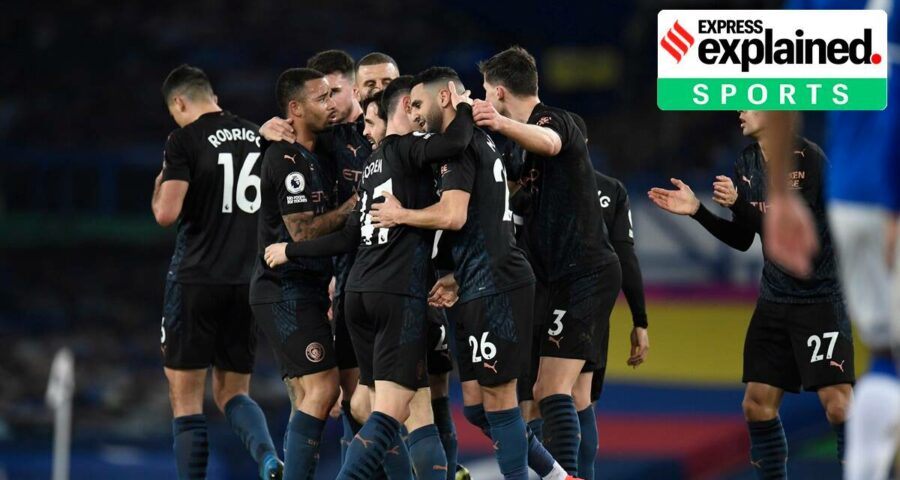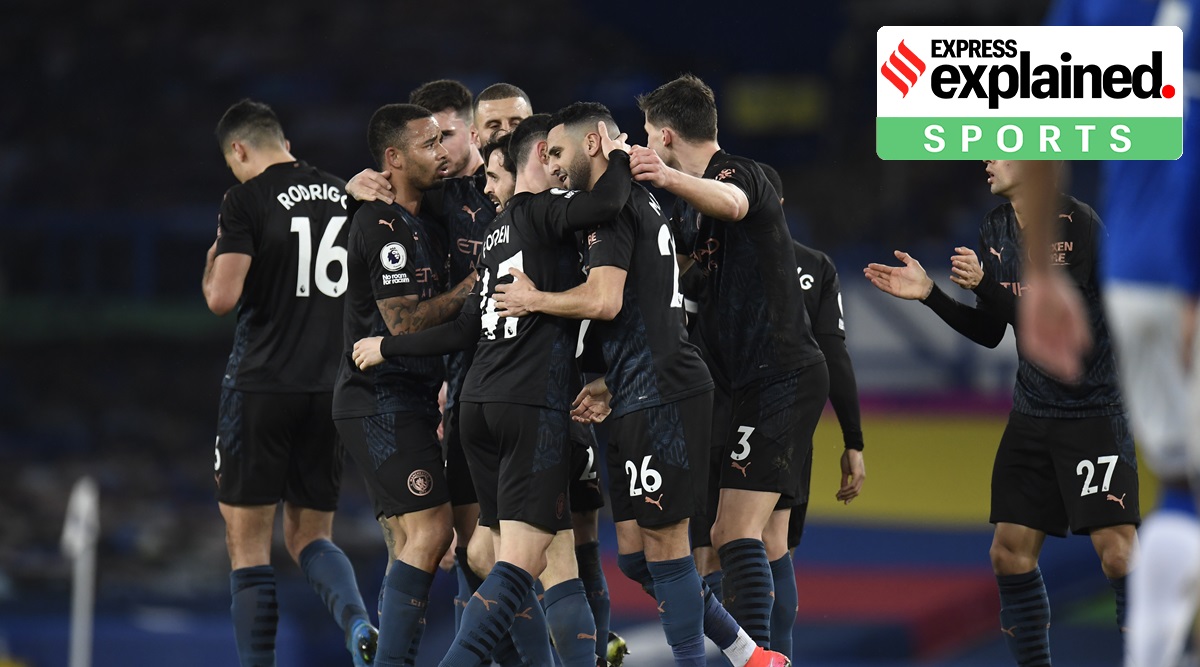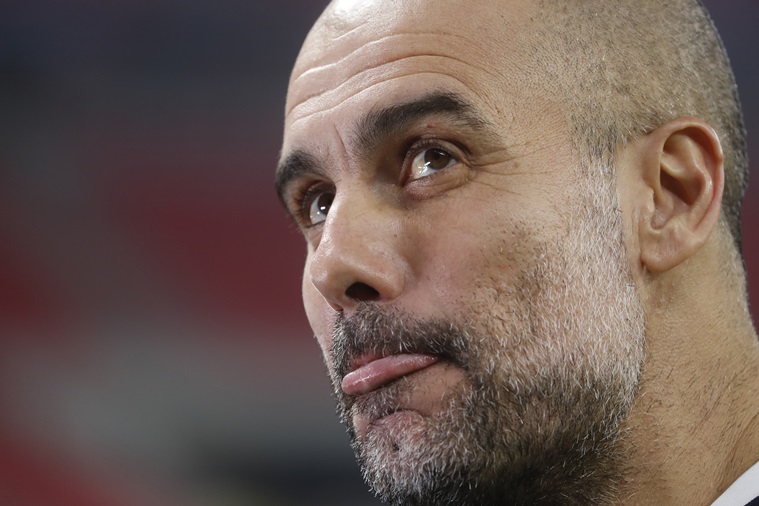So emphatic has Manchester City been that 2021 could turn out to be their most historic season; they are already galloping away with the league title, besides looking invulnerable in the FA Cup and Champions League.
Forget calendar congestion, injuries and infections, bio-bubbles and virus scare, empty stands and flaky Manchester weather, Manchester City have thrived when the pack around them has floundered. Records have been tumbling — they have already stacked their best-ever winning streak (19) in all tournaments, besides equalling their clean sheet tally from the whole of last season, with more than a third of the present campaign remaining.
So emphatic have they been that 2021 could turn out to be their most historic season; they are already galloping away with the league title, besides looking invulnerable in the FA Cup and Champions League, their Holy Grail. One could scoff at their transfer-market spree, sneeze at the alleged breach of financial fair-play and snigger at the misfortunes of their toughest competitors, Liverpool, but one should not be blind to the splendorous football they are brandishing, a fusion of steel and silk, daring and determination, craft, and composure.
What has been at the heart of their march?
Pep Guardiola’s teams are more reputed for their attacking flair than defensive organisation (though it does not infer that his teams are defensively shambolic). But this season, the standout feature in City’s title bid has been the solidity and reliability of their backline, ironically in a season wherein every other team has struggled to keep a tight lid on conceding goals. City have given away the fewest number of goals (15, the next best is 26), their effervescent goalkeeper Ederson keeping the most clean-sheets (15, his compatriot and Liverpool custodian Alisson has managed only 5), and their defenders have given away the fewest errors leading to goals (only 4). Since the stroke of this year, they have grown stingier, letting in only five goals in 15 games in all tournaments. Their combined disciplinary record is exceptional—no red cards yet and 28 yellow cards scattered among 20 players.
The inability to find a suitable replacement for the inspirational Vincent Kompany was slapped as the reason City floundered last season. But in Ruben Dias, they have discovered a similar leader, a quality centre-back as well as a combative character. As remarkably, John Stones has rediscovered himself and has displaced the elegant Aymeric Laporte as the Dias’s first-choice partner. Their bond has been telepathic, positioning and game-awareness magnificent. Add youngster Eric Garcia and Nathan Ake into the midst, City’s depth is head-spinning.
The skeptics would point out the astronomical sum they have splashed on assembling the backline—according to estimates around 428 million pounds since 2021. But every penny seems well spend, and the incredible depth they possess is the perceptible difference between City and the rest.
Has Guardiola diluted his attacking philosophy?
Guardiola, who became the longest-serving City manager of this century, might possess a better defensive record than Jose Mourinho this season, but he’s no Mourinho. Staggeringly, they have assembled the fine record without resorting to anything remotely cynical or conservative, without compromising on their fundamental attacking verve.
Rather, owing to the protective work undertaken by defensive-screen Rodri, the exquisite centre-back trio of Stones, Dias and Laporte, and that of the full-backs Joao Cancelo, Oleksandr Zinchenko and Kyle Walkers City’s attacking talents have been able to flourish.
The forwards trust those behind them to stop a counterattack if they lose possession. “When the strikers or attacking midfielders have the feeling that their defenders will defend well, or Eddy [Ederson] will save them, they are calmer,” Guardiola had observed.
There has been no shortage of goals—only their city rivals, United have blasted more goals (53, but how the record champions would crave for City’s defensive assurance). Astonishingly, they have scored all these goals despite missing talismans Kevin de Bruyne (17 games) and Sergio Aguero (143 minutes) for most of the season. Goals have flown in from everywhere—most surprisingly from Ilkay Gundogan (11), who has been deputed in a more advanced midfield role—as there have been 14 different goal-scorers. And not to forget goalkeeper Ederson, whose upfield scorchers have orchestrated several vital goals.
Why is his rotation policy being lauded?
Guardiola has been a fantasy premier league’s manager nightmare this season, because he keeps tinkering his first-choice eleven, not out of tactical necessity or injury defection, but to keep his players fresh in this helter-skelter season. None of the 23 players he has employed can claim to have played every game of the season. Ederson, understandably, has featured in the most (24), followed by Rodri and Raheem Sterling (23). Rodri because Fernandinho got injured in October and was out of the game for six months, Sterling because of Aguero’s sustained absence upfront. Though he is not a striker, his experience and craft were indispensable.
The rest have flitted in and out of the team like fireflies around a lamp. One could argue that Guardiola could afford this because he has the squad. So glittering that they could afford to bench Phil Foden and Riyad Mahrez, or Aymeric Laporte and Kyle Walker. Nonetheless, most managers, even if they have squad depth, would still prefer a trusted core. Guardiola harbours no such archaic notions. Any given day, anyone could play… and almost anywhere.
How has versatility helped him?
The left-footed Phil Foden is predominantly, considered a left-sided midfield schemer in the David Silva mould. But, he is as adept at playing on the right, or on both wings. He can also drift into a more central role and operate as the tip of a midfield diamond, Guardiola has even used him as a conventional No 10.
Likewise, Gundagon could switch between attacking and defensive midfield roles. Cancelo is listed as a left-back but has been mostly occupying the opposite flank. At times, he assumes the role of an advanced midfielder, where his passing and quick-thinking make him an even more influential player. A bit more refinement in finishing — he has seen his shots thud the bar, post, side-netting, teammates’ limbs —and he could be a genuine midfield contender. So are Riyad Mahrez, Sterling, and of course de Bruyne, the jewel in his crown.
📣 JOIN NOW 📣: The Express Explained Telegram Channel
A multi-faceted squad affords Guardiola much tactical flexibility. Players could imperceptibly swap roles when transitioning from defence to attack, they could change formations with the ease of flicking a switch, even if one player is enduring a bad day, he can summon another and expect him to deliver. So much so that this could arguably be the best all-round squad Guardiola could ever call upon. His Barcelona squad indisputably possessed better individuals (at least three you can think of—Messi, Xavi and Iniesta), but not the depth or multi-faceted brilliance of City. And herein hinges the portends of a historic 2021.
Source: Read Full Article



